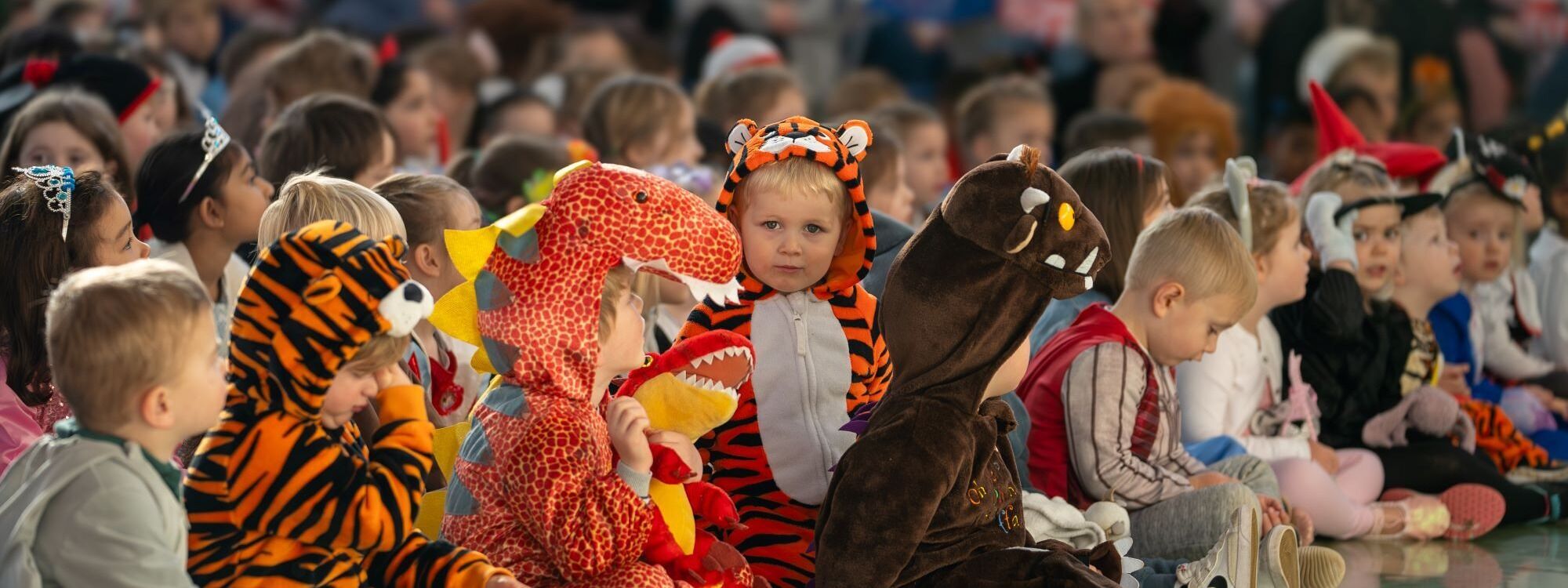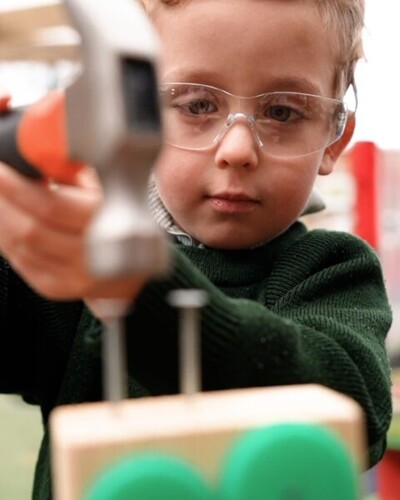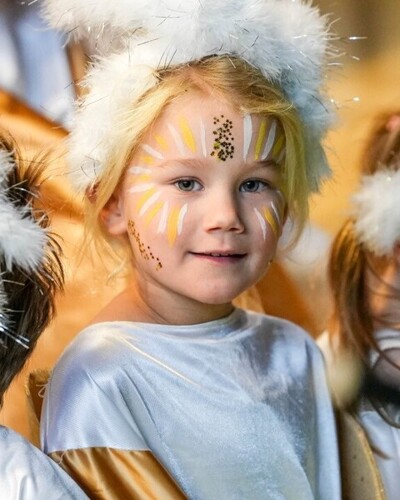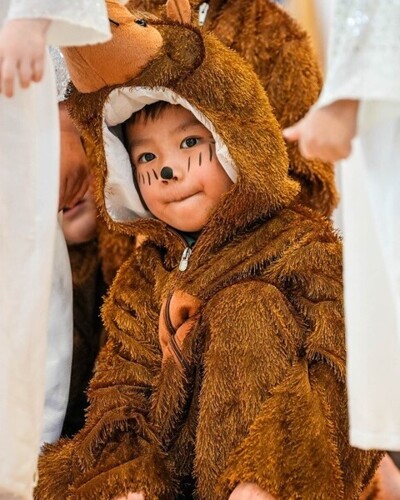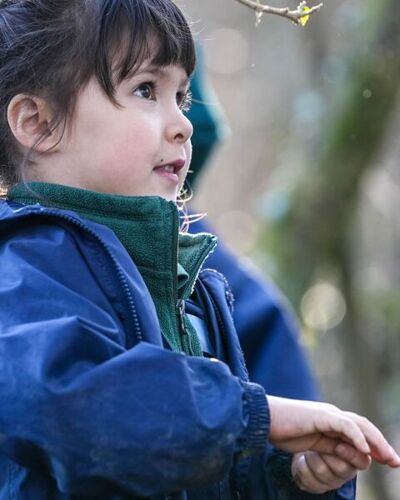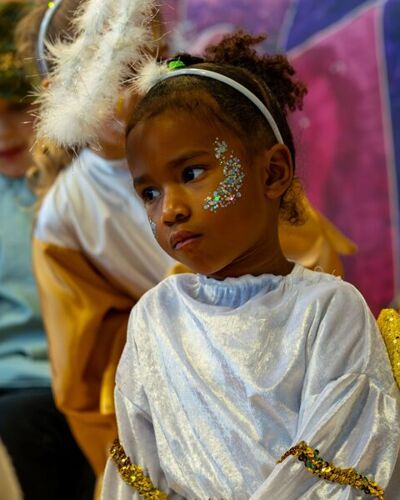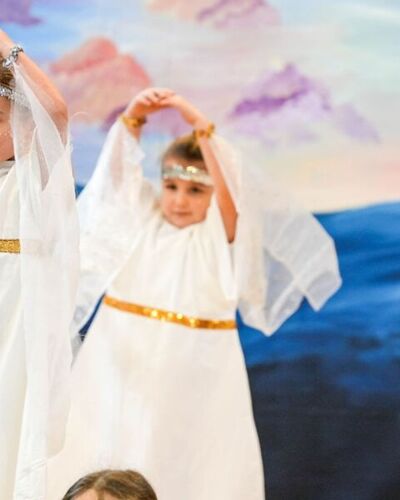Early Years - Reception
WELCOME TO OUR RECEPTION
Welcome to Reception at KES Preparatory School, where children aged four to five years have the best possible introduction to education through a nurturing, stimulating and playful environment, fostering independence and creativity in every child.
The transition from our Nursery into our Reception classes at our independent school is seamless as the children are already familiar with the team and the environment. We support every child with each transition and ensure children joining us feel happy and confident when doing so.
ROOM FOR GROWTH
Our Reception children begin their school life in the purpose-built Early Years building, designed with the needs of the child at its heart. There are two Recepeption classrooms that all lead out to a large canopied outdoor classroom. There is a dedicated Early Years library and shared space where specialist lessons, such as music and yoga, are taught.
We are also thrilled to have Little Meadow, a pocket of wonderful nature at the end of our garden, surrounded by glorious countryside. This wild space gives our children the opportunity to immerse themselves in nature and wildlife, grow vegetables and harvest apples from our orchard.
Our sustainably built Meadow Lodge in our Little Meadow area provides a hide to watch birds and other wildlife and offers a space to reflect. Little Meadow is surrounded by our farm. Our children love to visit our ponies, goats and chickens, learning to feed and care for them.
The extensive surroundings and the school facilities at KES beyond provide opportunities for Reception children to learn creatively, to have adventures and explore both indoors and out.
Our Reception children have access to a breadth of opportunities. They have weekly visits to our school farm to learn about taking care of our animals, Forest School, PE lessons, including swimming lessons during the summer term, weekly Performing Arts, yoga and French.
QUALIFIED TEACHING
Our Reception classes are led by qualified teachers and supported by learning support assistants. This excellent ratio enables us to deliver a tailored approach for every child. We understand that each child is unique, so their development needs are consequently supported in diverse ways.
We encourage and support a greater depth of learning, challenge, problem solving and creativity in the children’s play. We want the children to be active participants and to have ownership of their learning. We are frequently reminded that the children are far more creative than we are, given the opportunity. We want to ensure the interests of the children are valued and that there is the time, space and resources available for the children to follow their interests, ideas and questions at KES School, Southampton.
If you are interested in your child joining Reception classes, please fill out our enquiry form.
Languages
We offer weekly lessons in French and provide a wide variety of songs and activities to enthuse and excite children. Through songs and games, the children in Reception can learn simple words and short phrases. We also enable children to understand and use some routine language, such as greetings, reacting to foods offered and expressing emotions. We also explore sounds in French, through looking at individual words and listening to short stories.
Personal, Social and Emotional Development
Children’s personal, social and emotional development (PSED) is crucial for leading happy, healthy and fulfilled lives. It is a fundamental aspect of their cognitive development.
Strong attachments are really important for children. These attachments and relationships can shape their social world.
Strong, warm and supportive relationships with adults enable children to learn how to understand their own feelings and those of others. At Stroud our high staff to pupil ratio enables children to form these strong attachments. The adults are able to give the children the time needed to work through feelings and events and be positive and supportive role models.
We support children to:
- Manage and regulate their emotions.
- Develop a positive sense of themselves.
- Set themselves simple goals and challenges.
- Have confidence in their own abilities.
- Persist and wait for what they want.
- Direct their attention as necessary.
There is a wealth of wonderful story books that we use to help support children’s personal, social and emotional development.
Communication and Language
The development of children’s spoken language underpins all of their learning and development.
Children’s back-and-forth interactions are effective from an early age. They establish the foundations for language and cognitive development. The number and quality of the conversations they have with adults and peers throughout the day in a language rich environment are crucial.
Having conversations together is key. Our staff comment on what the children are interested in or doing, and echo back what they say with new enriching vocabulary. Practitioners will build children's language effectively by involving them in a conversation.
Reading frequently to children helps to grow their vocabulary and listening skills. We read lots of stories and engage them actively in these, along with non-fiction books, rhymes, and poems. We then offer them extensive opportunities to use and embed new vocabulary in a range of contexts like writing and talking. This allows the children to thrive and enjoy exploring the new words they are learning.
Our small group time in Nursery focusses around this area of learning providing daily opportunities to share news, stories and play language rich games. In Reception there are these opportunities as well as a time to tell their own stories which they can act out with the class. We build a bank of ‘wow’ words that we can use.
Through conversation, story telling and role-play, children share their ideas. With support and modelling from our skilled practitioners, and sensitive questioning that invites them to elaborate, children become comfortable using a rich range of vocabulary and language structures.
Physical Development
Physical activity is vital in children’s all-round development, enabling them to pursue happy, healthy and active lives.
Our children have many opportunities to develop both their fine and gross motor development both in the classroom, out in our garden and in the specialist subject lessons.
Gross motor development - all the children attend weekly PE lessons with specialist staff. During these sessions they work on developing their balance, coordination, fitness and overall body strength. They also enjoy weekly Forest School sessions where they are able to climb and balance. Ballet and yoga provides a wonderful opportunity to develop their core strength and coordination. Gross motor skills provide the foundation for developing healthy bodies, as well as social and emotional well-being.
Fine motor development - fine motor control and precision help with hand-eye coordination, which is later linked to early literacy. These skills support the later development of elements like scissor and pencil control and handwriting. Our tinker tables provide fun and engaging ways to develop their fine motor control along with activities such as dough disco, puzzles, arts and crafts. Providing opportunities to practice using small tools alongside feedback and support from the adults, allow our children to develop proficiency and confidence.
Literacy
This area is divided into 'Comprehension', 'Word Reading' and 'Writing'. Each of these sections focusses on different skills relating to reading and writing development.
- Comprehension refers to our children’s understanding of the words they read or hear. It is a necessary skill for both reading and writing, and it starts from birth. We develop language comprehension by talking with our children about the world around them, explaining things, answering questions and giving examples of words. Reading books to children, whether they're fictional stories or non-fiction and sharing rhymes, poems and songs all promote this development further as children grow. Our aim is to develop a life-long love of reading.
- Word reading involves both the speedy working out of the pronunciation of unfamiliar printed words based on the sounds of each letter, which is called 'decoding'. We teach this through our systematic phonics scheme. We also teach the speedy recognition of tricky words that can not be decoded.
- Writing involves transcription, including both spelling and handwriting. It also involves composition, where our children articulate ideas and structure them in speech, before writing. The Nursery children have lots of mark making opportunities and Reception take part in the ‘Big Talk’ and ‘Big Write’ each week to develop these skills.
Mathematics
Mathematics is divided into 'Number' and 'Numerical Patterns'.
- Number concentrates on number work and number problems. We support our children in developing their counting, addition and subtraction skills.
- Numerical Patterns focuses on recognising and representing patterns as they count, being able to compare numbers and see differences.
Developing a strong grounding in numbers is essential so that all our children develop the necessary building blocks to excel mathematically. We teach the children the mathematical skills in adult led lessons and then provide frequent and varied opportunities to build and apply this understanding in their play. We teach children using concrete resources, this is the ‘doing’ stage. We then move onto pictorial representations. This is the ‘seeing’ stage and then finally to abstract representations which is the ‘symbolic’ stage where children can use abstract symbols to model mathematical problems. Our children will develop a secure base of knowledge and vocabulary from which mastery of mathematics is built.
Understanding the World
Understanding the World covers three key topics, which include:
- People, Culture, and Communities – in this area our children broaden their understanding of different people including their cultures, religious beliefs, and their individual contributions to society.
- The Natural World – this area explores the natural world, we help our children understand the seasons and develop their understanding of other living organisms. Our extensive grounds which include woodland areas, a pond and farm as well as trips and visits give our children an excellent understanding of the world around them.
- Past and Present – we look at the past and present with our children to allow them to begin to understand and articulate differences between these times.
Understanding the World involves guiding our children to make sense of their physical world and their community. The frequency and range of children’s personal experiences increase their knowledge and sense of the world around them. Trips and visits to the New Forest, libraries, and theatres and meeting important members of society such as police officers, nurses, and firefighters all contribute towards broadening this understanding.
In addition our children listen to a broad selection of stories, non-fiction, rhymes, and poems that foster their understanding of our culturally, socially, technologically, and ecologically diverse world.
Expressive Arts and Design
This area of learning seeks to support children in expanding their imagination and ability to express themselves.
This Learning Area explores:
- Creating with Materials – our children experiment with different ways to make or present art. This includes looking at different media, like drawings or sculptures, and different materials, like colouring, painting, or building.
- Being Imaginative and Expressive – we give our children lots of opportunities to be able to come up with their own pictures, ideas, and ways to express themselves.
Expressive Arts and Design gives children the freedom to express themselves using the media and outlets they resonate with the most, preparing them to become confident individuals who have a strong sense of self.
The development of children’s artistic and cultural awareness supports their imagination and creativity. We ensure our children have regular opportunities to engage with the arts, enabling them to explore and play with a wide range of media and materials in the classroom. Our children also have drama workshops and weekly music lessons taught by a specialist teacher where they explore different instruments, learn songs, move to the music and learn musical vocabulary.


